Egert writes a blog from Ghana. See what he’s doing there.
There are a lot of talented people in Ghana, so I’ll stop talking about myself for a while and put the spotlight on them instead. The first thing to caught my attention was a certain restaurant and the women behind it. We’ve been dining there for a week in a row, because the food’s great and the people inspiring.
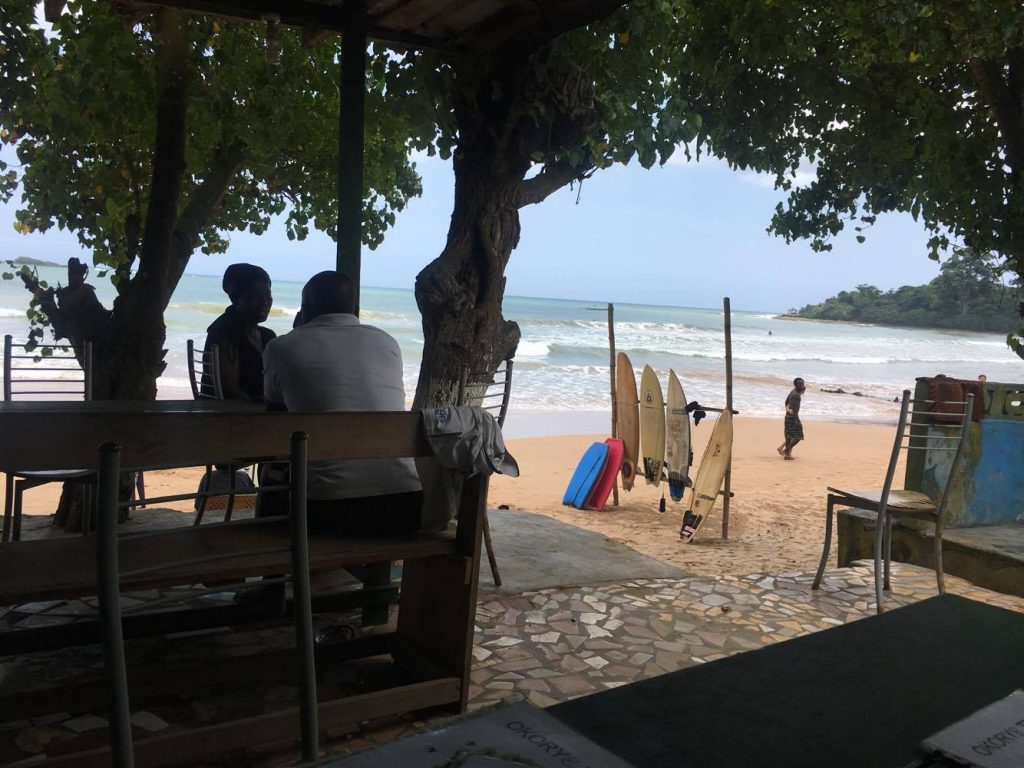
„Okorye“ means „together“ in Akan, it suits a cozy restaurant by the sea and the four women who run it. „The Okorye Tree“ restaurant at the Busua beach was started by four women with a common dream of starting their own restaurant. Each one of them has brought unique flavours, skills, and passion to this place, to create an ambiance that calls out for people to dine together.
It takes a great deal of will and patience to keep a restaurant like that going in the small fishing village of Busua, Ghana. The conditions are hardly comparable to our own restaurants and cafés. Lack of produce and tap water, power outages, a tiny kitchen, equipped with but one gas stove – but even with all that going on, great dishes can be made, if you have the passion for cooking, which those four women certainly do.
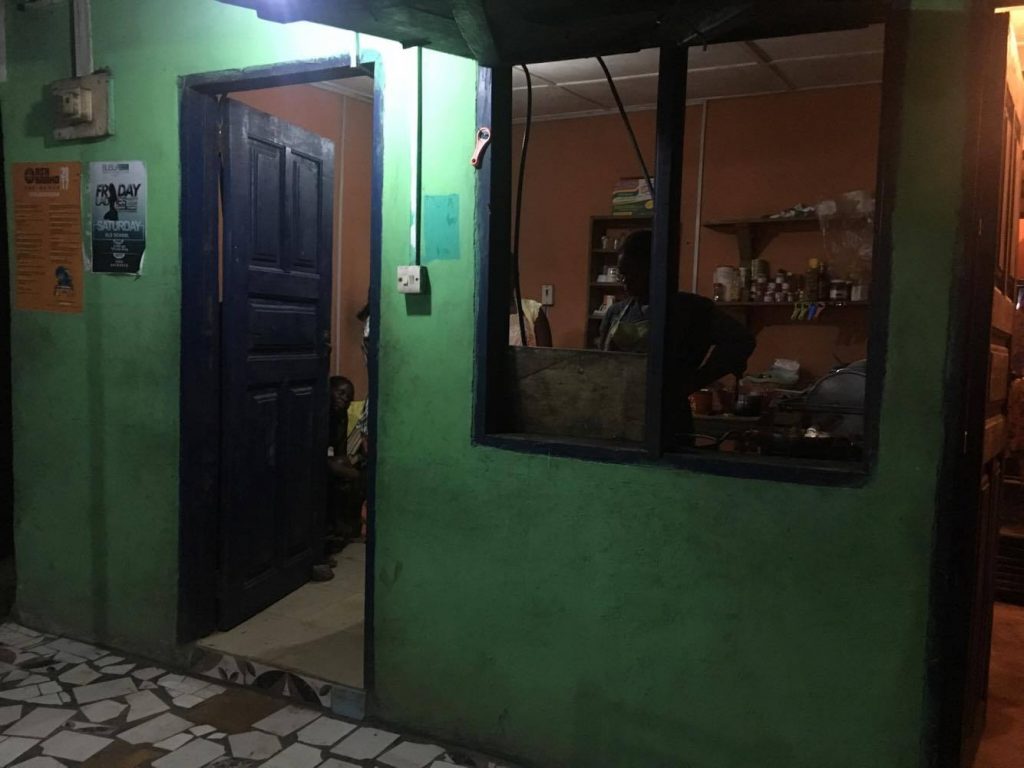
Tiina, the woman whose brainchild the restaurant was and who runs it, kindly agreed to talk to us about it all.
When did you have the idea to open your own restaurant? And why only women, that seems rather feminist?
In 2014, a white guy named Ben had the idea to open a restaurant, but he went back to Europe, and then we decided to rent the place from him for four years and have a go at it ourselves. We came up with a menu in our own style and started experimenting. Many people say that cooking and running a restaurant here is not easy, and if we happen to have a lot of customers at one time, it can be very difficult, but if you’ve got the passion for cooking, you’ll get through the rough patches. It’s run by women, because we already knew each other and it just happened.
A lot of your dishes are very European.
We have studied cooking, so we of course are familiar with international dishes. I always get ideas on what to add to the menu. Whites like cheese, so if we can get it from somewhere, everyone goes for the tuna sandwich. Since we often don’t have the right produce available, our European dishes have a touch of Ghana in them, because we have to replace some of the ingredients with what we have on hand here.
I like international cuisine. I worked in Tunisia for five years and became very good at making their traditional dishes. If you go into someone’s kitchen to cook their local cuisine, and you have the ambition to eventually cook even better than they do, then you can really call yourself a chef.
We’re also very flexible with our cooking: more and more of the volunteers who come here don’t eat meat, so we invite them into the kitchen and they can choose what goes into the dish.
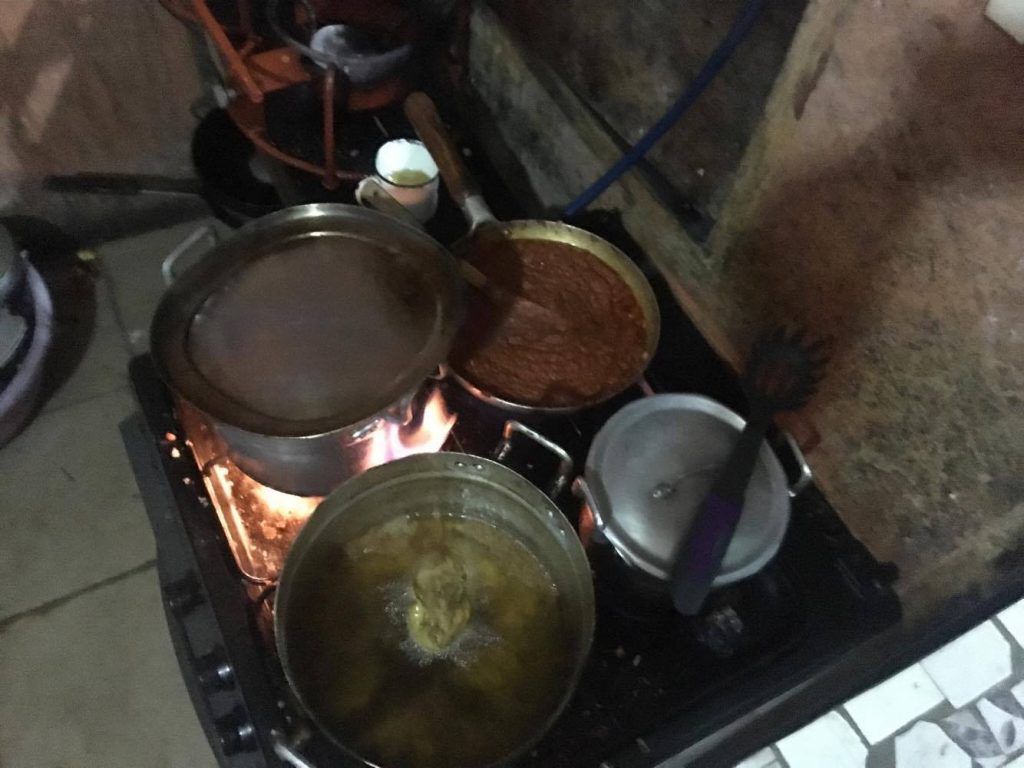
What’s the most popular item in your menu?
The burrito. Always. We’ve listened to our customers and changed it a little bit – you need to listen to your customers, to make them happy and that way they’ll also share their good experiences with the people they know.
What’s your own favourite food?
This might come as a surprise to you, but my favourite is couscous. I learned to cook it and to love it while I was in Tunisia. Generally, I like more modern food, but sadly we don’t have the produce for it, so I can’t get couscous in Ghana.
How hard is it to run a restaurant knowing you might not always have everything you need to make delicious food?
It’s really tough. For example, we haven’t had mustard since December of last year, because there haven’t been any in the stores or at the marketplace. There are also times when we don’t have oregano. It’s hardest to manage when we don’t have salad and fresh greens, so we have to take that into consideration when putting together a menu. We’ve had times when we’ve had to replace salad with cabbage, because there was nothing else available.
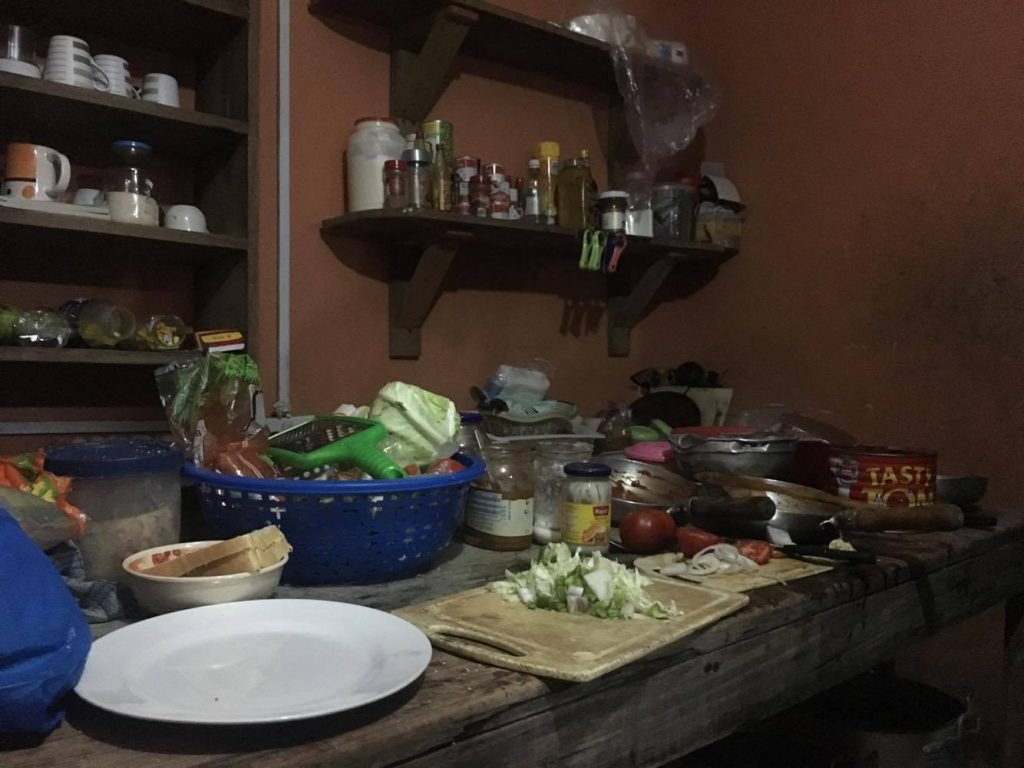
In addition to lack of produce, you have to deal with long periods of rain when there’s not a lot of customers, how do you get by?
We’re here every day from the crack of dawn until late in the evening. Our prices are very low (breakfasts up to 2 euros, lunch up to 3 and dinner up to 5 euros), we had to lower them, because tourists don’t really come here anymore, it’s mostly volunteers and backpackers, and they’re not exactly swimming in cash either. We had to lower the prices so that everyone could come eat here.
Every business has their ups and downs, sometimes we don’t see a single person in three weeks – I’m dead serious. In May and June, there weren’t any customers, because that was the rainy period. Since volunteers make up the bulk of our customers, we don’t see a lot of people here in October or November either – the volunteers leave in August and the new ones don’t arrive until September, plus they take a little time to settle in first, before they start going out and about.
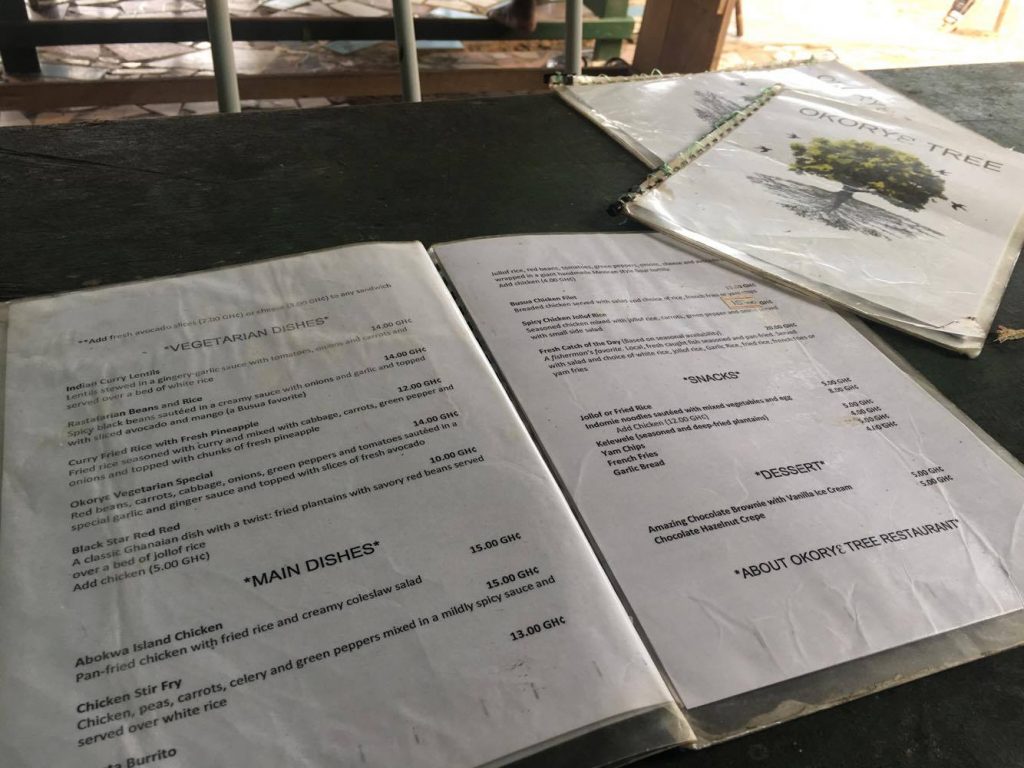
In November last year, we didn’t even make 300 cedis (60 euros) for the month. Of course it’s difficult, because we’ve spent money to buy food, drinks, lightbulbs, and we have families to feed. There are good times, like Christmas, then we hire people to help, because there are a lot of customers. We like what we don, even though we’re not getting rich, on average we make about 500 cedis (100 euros) per month.
Have you had a lot of power outages here? How does that affect your work?
You must have been here yesterday when it was raining, there was thunder and the power went out? We bring out some candles, it might seem romantic, but often it actually costs us a lot of money. Like last year, we didn’t have any power for 3-4 days, but we had just stocked up on produce for the season, so all of our meat and fish, everything rotted. There’s no point in buying generator, since the air here by the sea will just ruin it and it won’t last longer than a month.
Since we use gas, we’ve also had some fires here, like when someone leaves the gas on during the night and the second you strike a match in the morning – boom! We’re by the sea, everything’s always damp, so the electrical wiring is damaged quickly and a short circuit can cause a fire.
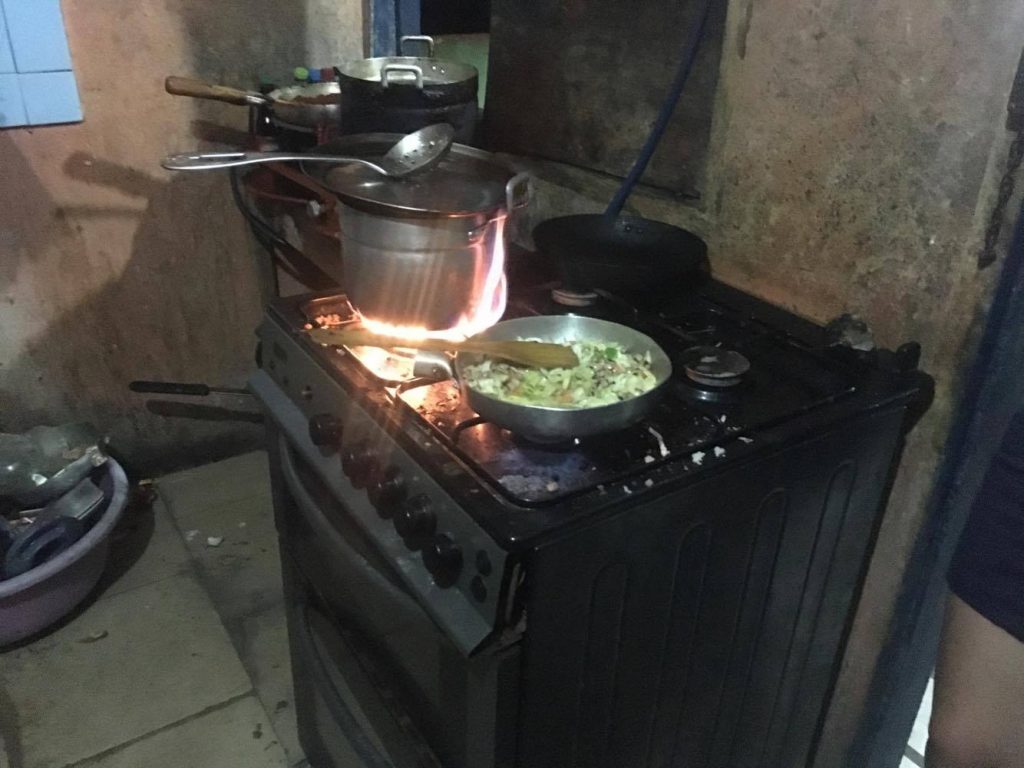
If you could change anything about your job, what would it be?
We don’t have proper equipment like you do. We have knives, a cutting board, a gas stove, a grater and a pan – and we have to make due. We make fries in the pan, not in a separate deep fryer. So everything takes a little bit longer. We got a toaster, but it broke in a week, so we have to toast bread on the pan, whereas in a toaster it would just take a minute. We cut our vegetables and salads with a knife, we don’t have food processors like you do. But the biggest problem is our tiny kitchen – if it’s a busy season, we don’t have enough space for all of us in the kitchen.
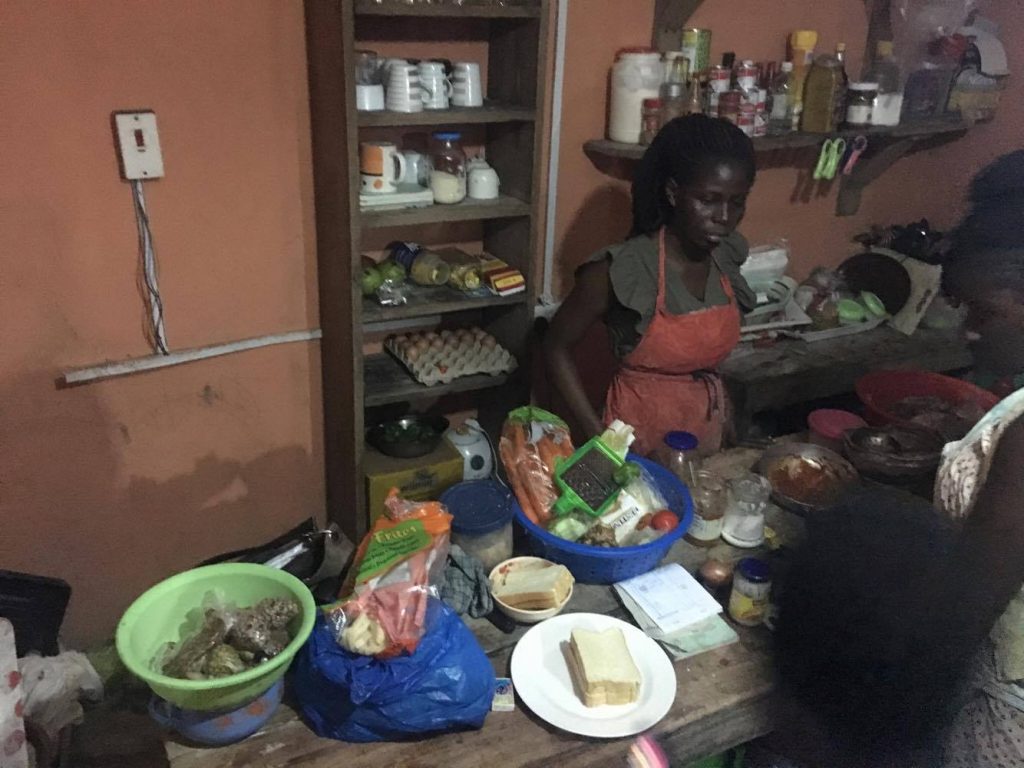
Do you also cook at home?
Yes, of course. I’m not tired or bored of cooking, it’s my passion, and at home, I cook more traditional food, because my family likes that more. My husband doesn’t eat vegetables, so I have to hide them into the dishes like I do for the kids.
How do do it, day in, day out, all of you have families and chores, but you’re all here every day?
(Tiina laughs). Well, you’ve been here for a month, so I’m sure you’ve noticed that the women are strong here and do most of the hard work (get water, cook, clean, take care of the animals, handle the crops and also go to work). We’ve divided ourselves into shifts, two of us work for the first half of the day and the other pair the other half, and we switch. So we manage.
We want for our guests, who come to Ghana, to be happy. If you eat good food, you’re happy. And that’s what matters.
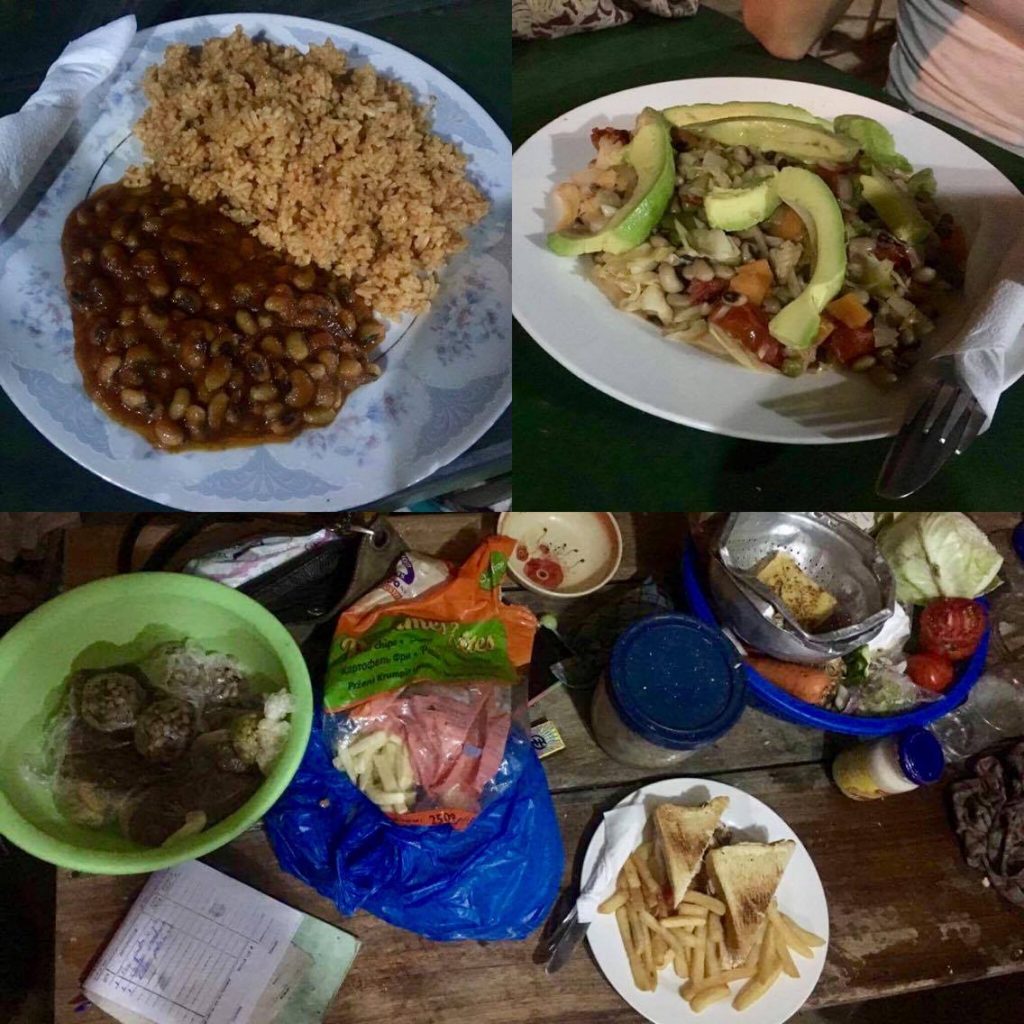
Since you are here...
It is important to protect everyone’s human rights, because it helps to keep stability and peace in the society. There are many challenges for protection of human rights in Estonia: intolerance has really come out of the closet. Bad things happen when good people are too passive, but together we can make a change.
Estonian Human Rights Centre is the competent, accountable and impactful independent human rights organisation in Estonia. Your recurring or one-time donation helps to stand up for human rights everywhere: in courts, in the media, in schools, in the workplace, on the streets and in governmental venues.
Donating is easy, and you can use your credit card if donating from abroad.
Donate now